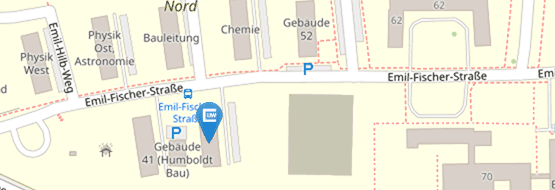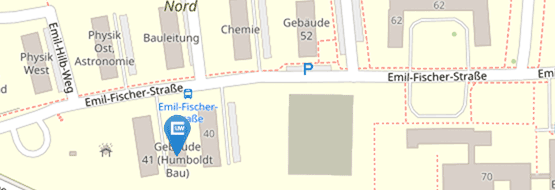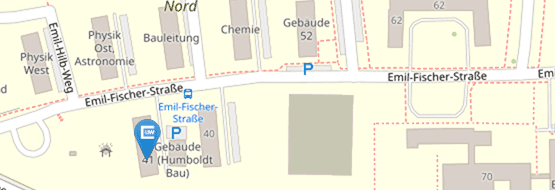Spring School 2016
Perspectives on Research in Mathematics Education in the next Decade (April 04 - 09, 2016)
Topics
- Priorities and challenges for mathematics education research
Abstract: As I see it, one of our major priorities in mathematics education research is to bridge the gap between research (and researchers) and practice (and practitioners), both in terms of content and in terms of structural and organisational matters. One reason for this is an increasing pressure from practitioners and society (as represented by authorities, politicians, administrators, employers, and media) on mathematics education research to "deliver" relevant and specific outcomes of our research for the improvement of teaching and learning of mathematics. In my presentation I shall discuss this issue and present a special Danish further teacher education programme designed to bridge this gap. The programme addresses upper secondary school teachers and was established in 2012.
It also seems to me that we have a challenge concerning the predominant research publication paradigm in our field. The bulk of research publications, especially in journals, present empirical results, oftentimes from small-scale qualitative studies, which are embedded in (or at least pay hommage to) some sort of theoretical framework. While such studies can indeed be most relevant and of a high quality they shouldn't stand alone. Our field is far from mature enough to be allowed to "canonise" a particular kind and form of research papers. In my presentation I shall elaborate on this challenge and discuss its relations to the above-mentioned priority. - Researching the potential of digital technologies in mathematics learning: theory, design and the challenges of scaling innovation
Abstract: In this session, we will present a range of research studies that demonstrate the potential of digital technologies in mathematics learning. We will discuss and critique the theoretical frameworks that underpin them and the methodologies adopted. We will focus some attention on the challenges of scaling innovation, again by presenting some examples for discussion. They offered to give two talks either concerning different topics (concerning the potential of digital technologies) or one main-topic from two different points of view. - Global Mathematical Modelling – a journey on theory, research and practice of an upcoming topic
Abstract: Mathematical modelling became a key competence within school curricula and educational standards in many countries of the world. The presentation gives insights into the current situation concerning research, theory and practice and as well teachers’ motivations and needs of this upcoming topic. - Mathematical Giftedness: Conception, Diagnosis & Students‘ Support.
Abstract: The contribution will focus on three key topics:- What is “mathematical giftedness”? How can “mathematical giftedness” be conceptualized? What are the relations to standards of mathematics education?
- How can mathematically gifted students be identified in school? How can their special abilities be diagnosed?
- How can mathematically gifted students be supported in school – especially in regular lessons (and not only by enrichment offers)?
- Qualitative methods in mathematics education research
Abstract: Qualitative research methods in mathematics education are interested in questions how meaning is created in interactions related to mathematical subjects and how such processes can be described by representative concepts in order to develop explanatory theories. The underlying theory of knowledge assumes that knowledge arises through acting and interacting of self-reflective beings within an existing cultural matrix. The presentation will demonstrate examples of a qualitative research designs and discuss some fundamental methodological and epistemological questions related to the approach. - Quantitative research methods in mathematics education
Abstract: Research articles (or dissertations) using quantitative methods in the domain of teaching and learning mathematics share some specific commonalities with respect to planning an empirical study, collecting and analyzing data, and reporting on the respective results. In an introductory talk, important features of quantitative studies will be illustrated and the typical structure of a quantitative research report will be explained. In a subsequent workshop, participants will be able to practice some fundamental techniques, such as formulating research questions, operationalizing psychometric constructs, or applying basic statistical methods.
Invited Speakers
- Mogens Niss (University of Roskilde, Denmark)
Mogens Niss is a world-wide highly acknowledged researcher in mathematics education. His research interests are focused on the justification problem in mathematics education, on applications and modelling in the teaching and learning of mathematics, on assessment, on the nature of mathematics education research as a scientific discipline, and on mathematical competencies in mathematics education. He has been a member of the Executive Committee of ICMI for 12 years, and for the past eight years the Secretary of ICMI. He was the chair of the International Programme Committee of ICME-10, Copenhagen 2004, and the Editor-in-Chief of the Proceedings of that Congress. He was a member of the International Programme Committee for ICME-11 (Monterrey, Mexico, 2008) and he is the Chair of ICMI Awards Committee responsible for the selection of awardees for the Felix Klein and Hans Freudenthal Awards. Moreover, he was a member of the ICMI-Denmark national subcommission, OECD PISA’s mathematics expert group.
Priorities and challenges for mathematics education research - Celia Hoyles and Richard Noss (UCL Institute of Education, University College London, UK) Celia Hoyles has been President of the Institute of Mathematics and its Applications in the UK. She served as Government Chief Adviser for Mathematics from 2004 to 2007 and as Director of the National Centre for Excellence in the Teaching of Mathematics from 2007 to 2013. In 2003, she was awarded the first Hans Freudenthal Medal by the International Commission on Mathematical Instruction in recognition of 'the outstanding contribution that she has made to research in the domain of technology and mathematics education'. Her fields of interest are: policy, research, students' conceptions of proof, mathematical skills in modern workplaces, computational environments for learning and sharing mathematics and systemic change in teaching mathematics.
Richard Noss is co-director of the London Knowledge Lab, an interdisciplinary collaboration between the Institute of Education and Birkbeck, two colleges of the University of London. He was co-founder and deputy scientific manager of Kaleidoscope, the European network of excellence for technology enhanced learning, and is currently the director of the UK's Technology Enhanced Learning Research Programme funded jointly by the ESRC and EPSRC. His research areas are technology-based innovations in mathematics teachers' practices, design research concerning intelligent exploratory learning environments, indicating and validating student perception, and – in the last years – the project Cornerstone Mathematics: Designing Digital Technology for Teacher Adaptation and Scaling.
Researching the potential of digital technologies in mathematics learning: theory, design and the challenges of scaling innovation - Marta Menghini (Dipartimento di Matematica, Sapienza Università di Roma, Italy)
She works in the area of mathematics, mathematics history, the curriculum reforms and especially the learning and teaching of geometry in mathematics classrooms. At the moment, she translates the 3rd volume of Felix Klein’s “Mathematik vom höheren Standpunkte aus” (1902) into English – the first two volumes of these very influential books are already available in English – and she is involved in the world-congress ICME in Hamburg in July 2016, in organizing the Thematic afternoon “The Legacy of Felix Klein”.
"From practical geometry to the laboratory method: the search for an alternative to Euclid in the history of teaching geometry" - Rita Borromeo Ferri (University of Kassel, Germany)
Rita Borromeo Ferri is a “rising star” in the area of mathematics education. Her research interests are mathematical modelling, mathematical competencies on crossing points in school development, mathematical thinking styles and university didactics. She is a member of the lnternational Community of Teachers of Mathematical Modelling and Applications (ICTMA), was invited for a regular lecture at the ICME in Soul (2012), she gave the young researchers’ plenary talks at the Annual German Conference 2014, and she organized the YERME-summer school of the European Society for Research in ME in 2014 in Kassel.
Global Mathematical Modelling – a journey on theory, research and practice of an upcoming topic - Volker Ulm (University of Bayreuth, Germany)
His research interests are in developing competencies in ME, in the area of inquiry-based mathematics education, in fostering gifted children and in the use of digital technologies. He was and still is involved in the development of the Dynamic Geometry Software GEONeXT in Bayreuth, he was involved in the German Project SINUS and SINUS-Transfer. He was one of the leading persons of the European Project Fibonacci and is the leader of the European project Project "KeyCoMath – Developing Key Competences by Mathematics Education".
Mathematical Giftedness: Conception, Diagnosis & Students‘ Support. - Lisa Hefendehl-Hebeker (University of Duisburg-Essen, Germany)
Qualitative methods in mathematics education research - Stefan Kraus (University of Regensburg, Germany)
Quantitative research methods in mathematics education





